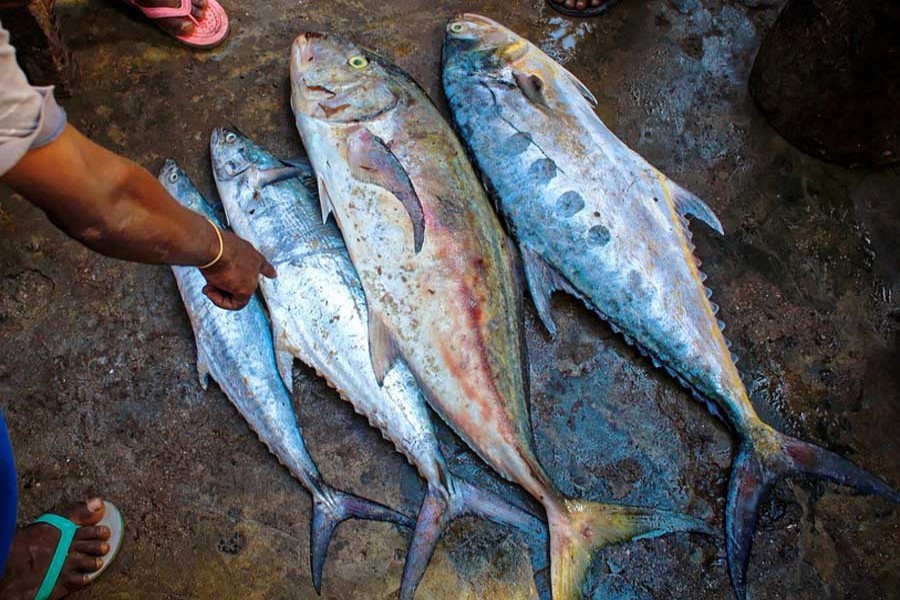
Published :
Updated :

The government has taken a fresh move to find foreign cooperation with tuna-rich countries under government to government partnership to catch tuna fish in the deep-sea.
The fisheries department took the move after being failed to initiate private companies launch long-liner for fishing tuna and tuna like fish.
"We are now trying to initiate discussion with the countries like Japan or Thailand to catch tuna fish under government to government partnership," Hassan Ahmed Chowdhury, project director of 'marine fisheries capacity building' told The Financial Express.
Neighbouring countries such as Sri Lanka, the Maldives and India are using longline fishing and are fetching a handsome amount from exporting the items.
The government took the step to explore sea resources as Bangladesh got the right to fish in 118,813 square kilometres area of the sea and trawl up to 200 nautical miles into the Bay of Bengal after a verdict from an international tribunal in 2014.
But several attempts failed due to mainly government's reluctance, the private entrepreneurs who are interested to catch alleged.
The fisheries department has awarded license to 16 firms to catch tuna and tuna like fish two years back but none of them was able to launch long liner until today.
They are saying the government doesn't have necessary survey on tuna and tuna-like species in deep sea.
Last year, the state-run fisheries department took an initiative to conduct a survey.
"But Executive Committee of the National Economic Council (ECNEC) did not approve the project," Mr Chowdhury said.
He said now the department is trying to convince government to make partnership with the countries like Japan and Thailand.
"Some other countries including China also showed interest to make partnership to catch tuna. But the department is interested about Thailand and Japan due to their expertise in tuna and tuna like-species, he said.
Sea Link is one of the 16 firms who was awarded licence.
Chief Executive of Sea Link Hasanul Bari had earlier told The Financial Express that his company was ready to float the vessel but it could not invest huge money unless proper survey is done.
"No bank is providing loan without survey or feasibility study. We can't do the study. This has to be done by the government," Mr Bari said.
Currently, Bangladesh has 246 small trawling vessels licensed for fishing beyond 40 depth limit in the Exclusive Economic Zone.
According to the UN Food and Agricultural Organization (FAO), most high-sea tuna seiners average about 70 to 80 metres in length and can carry about 1,000 to 1,500 tonnes of frozen tuna. Such vessels can fish throughout the oceans of the world, and make trips that last up to several months before returning to port.
On the other hand, the long-lining involves the use of a mainline, which can be more than 100 km in length and from which as many as 3,000 branch lines, each with a baited hook, are dangled in the water column.
Bangladesh has at least 400 fish species in its 118,000 square kilometres-maritime area.
According to Bangladesh Fisheries Research Institute (BFRI), about 90 species are commercially important. But the traditional fishing is not targeted at species.
After securing the membership of the Indian Ocean Tuna Commission, now the global ocean is open for Bangladeshi licensed companies to fish targeting only Tuna and other Tuna-like pelagic fish species.


 For all latest news, follow The Financial Express Google News channel.
For all latest news, follow The Financial Express Google News channel.